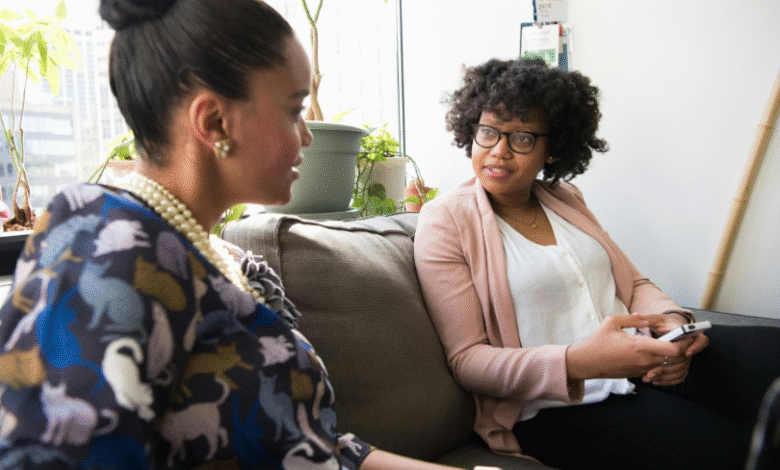Building Bridges: The Crucial Role of Inclusive Counseling For Diverse Populations

In a world where the fabric of society is increasingly diverse, the essence of effective counseling hinges on the ability to understand and embrace this multiplicity. The counseling field is not immune to the challenges that this diversity presents, nor to the opportunities for enriched client relationships and outcomes. Inclusive counseling seeks to break down the barriers that prevent individuals from accessing compassionate and competent care. As clients from varied backgrounds seek support, therapists are called to adapt and respond to diverse needs sensitively and effectively. Below, we delve into what makes inclusive counseling indispensable in today’s multifaceted society.
Understanding the Importance of Inclusive Counseling in Today’s Diverse Society
The societal mosaic of cultures, ethnicities, and identities underscores the need for counseling approaches that are both sensitive and adaptive. Inclusive counseling recognizes the distinct experiences and challenges faced by individuals from various groups. It acknowledges the impact of systemic inequalities and personal biases on mental health and the therapeutic relationship. Embracing this holistic approach fosters trust and better communication between the counselor and client.
At the heart of inclusive counseling lies the commitment to provide equitable care by affirmatively recognizing the cultural contexts of each individual. This entails not only understanding their unique cultural identity but also how it intersects with their mental health concerns. In an inclusive setting, clients feel validated and understood, which is fundamental to the healing process.
For counseling to truly be inclusive, there must be a concerted effort to dismantle the barriers that historically marginalized individuals face in accessing mental health services. This begins with education and awareness within the counseling profession itself, touching on issues such as cultural humility, representation, and advocacy. Making these systemic changes paves the way for a more just and egalitarian approach to mental health care.
See also: How Cape Town and Durban Rehab Centers Support Mental Health Recovery
Strategies for Cultivating Cultural Competence in Counseling
To effectively serve diverse populations, counselors must develop cultural competence; the ability to understand, communicate with, and effectively interact with people across cultures. This begins with comprehensive training and continuing education focused on cultural awareness and sensitivity. Counselors should engage in self-reflection to understand their own cultural identities and biases.
Building on this foundation of self-awareness, therapists can implement strategies such as employing culturally adapted therapeutic techniques. They should remain adaptable in their methods, ensuring that they respect the cultural values and communication styles of each client. Being open-minded and flexible is paramount in providing tailored and effective therapy.
Counselors should also seek supervision and consultation from culturally knowledgeable professionals when working with populations outside their own experiences. This peer support not only enriches the therapeutic process but also acts as a safeguard against potential cultural misunderstandings or missteps.
Case Studies: Successful Inclusive Counseling Interventions
Examining case studies illuminates the efficacy of inclusive counseling interventions. One such instance involved a counseling center that developed a program specifically tailored for refugees. The program utilized bilingual counselors and incorporated traditional healing practices, which resulted in increased engagement and positive mental health outcomes.
Another example includes a city-wide initiative that trained counselors in LGBTQ+ issues. With increased awareness and specialized training, the participating therapists reported feeling more competent in addressing the unique challenges faced by this community. The initiative also led to a higher rate of client satisfaction and retention.
In educational settings, school counselors who embraced cultural inclusivity in their approach noted improved academic performance and well-being among students from diverse backgrounds. By implementing support groups tailored to specific cultural experiences, students were provided safe spaces to share and heal.
Measuring the Impact of Inclusive Counseling on Client Outcomes
Assessing the effectiveness of inclusive counseling involves examining its impact on client outcomes. This process often requires both quantitative and qualitative measures to capture the full breadth of change. Quantitative data might include the rates of client retention, while qualitative data could encompass client testimonials detailing their therapeutic journey.
Client feedback plays an invaluable role in measuring the success of inclusive practices. Surveys and interviews can provide clients with the opportunity to express how well their cultural needs were met and how this influenced their overall experience. These firsthand accounts offer key insights into the strengths and areas needing improvement in the counseling services provided.
Altogether, embracing inclusive counseling practices is essential for delivering equitable and effective mental health services. Overall, as the world grows more diverse, the field must evolve, ensuring everyone has access to the support and understanding they deserve, regardless of their cultural background.




